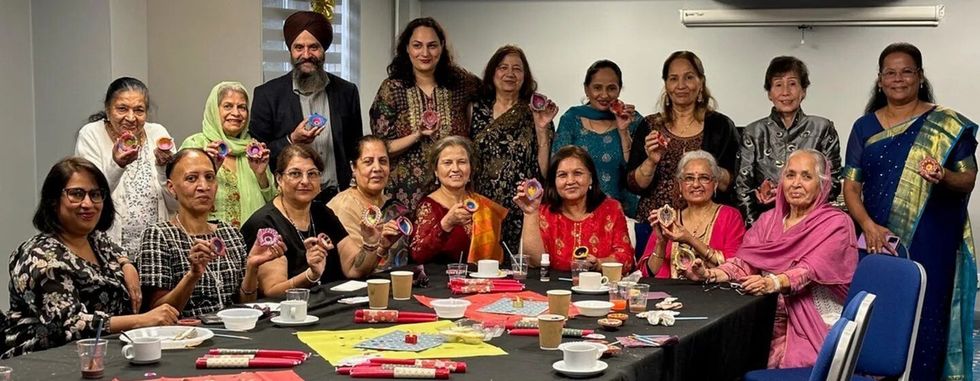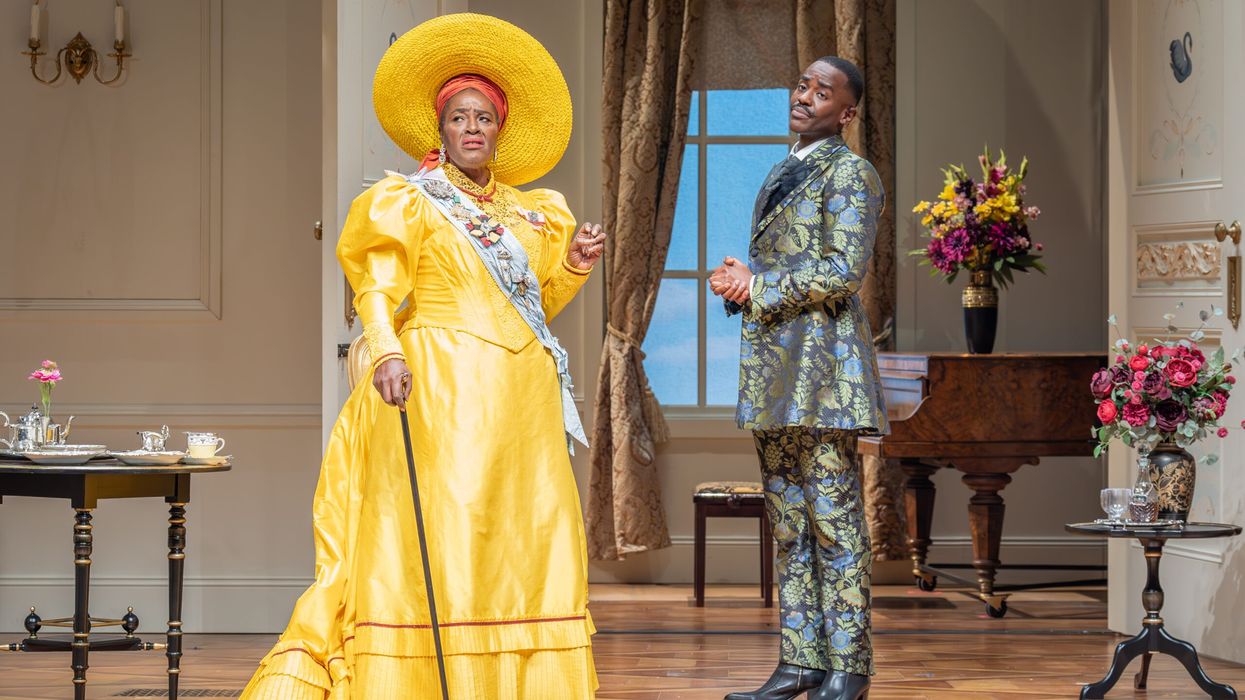INSPIRATIONAL stories of Punjabi women who came to the UK in the 1960s and 1970s take centre stage in The Valley of Queens, featuring singing, dancing and stories that have remained unshared – till now.
Written by Kiren Jogi, who is also part of the cast, the play provides an insight into the lives of south Asian women who settled in Sandwell Valley, West Bromwich.
“These women are sharing stories that perhaps have not been shared before,” Jogi told Eastern Eye.
“We’ve created a platform for this generation to share these narratives before they go and to document their journey, from when they first arrived, to the relationships they built, the struggles they faced while raising children, the education system, and the hostility and deportation of immigrants.
“They also talk about silly things like Anchor butter, custard creams and the culture shock of a new country. We dip out of the dark moments with these lighthearted stories that give a real insight into what life was like for these women.”
The play came as a result of The Happy Hour Project – where Sandwell’s south Asian women aged between 50 and 80 met in weekly group sessions for creative workshops, followed by refreshments and a chance to share their migration stories over a cup of chai.
It was commissioned by Creative Black Country and was run by Curl Girl Production where Jogi is the artistic director.
Jogi explained the project was beneficial to the women who live Sandwell Valley, an area she describes as a secluded cull-de-sac, with pockets of Punjabi communities scattered around the area.
“There’s no community centre for them or any other creative opportunities.”
“They don’t have a space where they can come out and speak to other people, be in an environment where they can be themselves and do things that perhaps they hadn’t done because they were so busy raising their families.

“Many of them live in big houses alone because their children have moved out and the only time they may go out is to visit the gurdwara, masjid or temple.
“Some of the women we worked with came from socially isolated homes, suffering from depression.”
Jogi was keen for the women to get their “creative juices flowing”. They took part in a wide-range of artistic endeavours such as African mask painting, laughter yoga, painting and sculpting.
“One of the women, her son is an established artist, yet she herself had not picked up a paintbrush. She came to our sessions and painted for the first time – it was so beautiful to see,” said Jogi.
“Some of them wanted to study, but they didn’t get the opportunity earlier in their lives. We introduced them to things like poetry, and they started to write their own poetry.
“It was a window for them and to relive a time when they wanted the opportunity to do these things but couldn’t.”
At the end of the 12-week project, the stories and the camaraderie between these women was used to develop a script, which was then commissioned by the Arts Council to be turned into a theatre production.
For Jogi, the play represented an opportunity to not only tell the stories of these women, but also change how elderly Indian women were viewed on stage.
“It’s almost like they are the forgotten ones – you’ll go to a show and see an old Indian lady as a grandma, or the neighbour, or just someone that doesn’t have a speaking part,” she said.
“Every single one of these women are lead characters and central to The Valley of Queens. There’s Gidha Boliyaan (a popular folk dance of women in the Punjab). There’s singing, there’s dancing, there’s all sorts of stuff these 80-year-old women get up to that no one knows about. It takes the audience on a magical journey of strength, struggle and resilience.”
When rehearsals took place in February and the women listened to their stories, Jogi reveals they were taken aback to see their lives play out in front of an audience.
The Valley of Queens is a verbatim piece of theatre with the idea that it gives a more authentic look at the migrant experience.
“There’s a lot of work produced that focuses on migration histories and based on first-hand accounts, but when it’s written into a script, it’s diluted slightly – it changes the real essence of the piece,” said Jogi.
“For me, in order to really give a true reflection of these women, it was important that it was told in the way it was said.
“You’ve got these women who’ve come from parts of Punjab, then other women from Uganda and Kenya, and they’re speaking in this Indian accent with a Black Country twang that they’ve picked up – it’s so beautiful to hear.”
Though the play is predominantly about Punjabi women, it has a diverse cast of ethnic minority actors.
“A lot of people said, ‘you’ve got a black actor in your cast, why is that?’. The play is also about other migrant women. We have an Afro Caribbean character, we have a Malaysian character, a Thai character. We’ve got all of these women coming together because their stories are so similar,” said Jogi.
Jogi hoped the play can give younger generations an insight into the lives of their ancestors who often don’t share their stories.
“It’s a show for south Asian people to come together as a community, and to bring your mum or your grandma or your aunt and watch a show together so they can really re-live their journey,” she said.
“It’s so important because these stories are not being collated. We’re not documenting any of this, but these are the people that allowed for us to be who we are today. They went through struggle, they sacrificed things they wanted to do,and went through so much hardship for us to have an education, for us to have a voice and to live comfortably.
“These women are our heroes, the unsung heroes. They’re often represented with a white chunni or a white dupatta (in the theatre), but they have such great personalities, have lived great lives and have so much to share.”
The Valley of Queens will be performed at the Midlands Arts Centre, Birmingham on Friday (6) at 2.30pm and 7.30 pm and on Saturday (7) at 7.30pm




